In 2011 I discovered several Anglo Australian market gardeners had been allocated land near the River Torrens in the western suburbs through the Soldier Settlement Scheme after World War I. At an exhibition about the Veneto market gardeners’ community, I met two families whose fathers were market gardeners who had applied to buy land as soldier settlers after the First World War in the St James Park area which we now know as Kidman Park. From 1915 the South Australian Government had identified areas of land and provided assistance to members of the Australian Imperial Forces (AIF) who had been honourably discharged from overseas service.
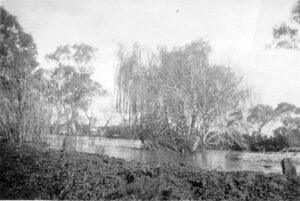
When I met Rae Ballantyne and his sister Barbara Haynes, and Barrie West, I learned that their respective fathers had served in World War I and had acquired their properties under the Soldier Settlement Scheme. Richard Reginald West acquired his property of 11.5 acres in 1920 and James Ballantyne took up his seven acres in 1923. I interviewed their children Barrie, Rae and Barbara in 2012 and each of them recorded memories of growing up on the market gardens.
There are similarities with the accounts given by the sons and daughters of the Veneto market gardener pioneers. For example, Barrie, Rae and Barbara recall the hard work required to cultivate vegetables for market and the long days in all kinds of weather. Like the veneti, they remembered that their mothers worked double shifts – in the gardens and managing the household. Both Barrie and Rae worked into their adult years on the family market gardens. Rae notes in his interview that:
Even the Italians, they had to work Saturday and Sundays, all their children … so that was the thing in those days.
Barrie West
Barrie was born on 22 August 1937 and grew up on the family market garden on Valetta Road, St James Park. His parents, Myrtle Helen Terrell and Richard Reginald West married in 1924 and had four children. In his interview Barrie speaks about his family, the range of vegetables his father first grew including cauliflowers and cabbages and beans and tomatoes in glasshouses.
From the 1930s the Wests grew celery because it was more lucrative than other vegetables. Barrie worked in the market garden from when he was 14 years. His older brother Reg managed the property after their father died in 1955 and Barrie worked in the market garden until about 1976 when the property was sold although Reg and his family continued to grow celery into the 1980s. Barrie’s mother lived until she was 95 years old.
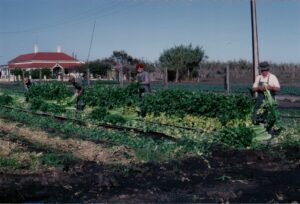
Barrie recalls that the Italian and Bulgarian market gardeners in the area had come to Australia with different traditions in agriculture and they were not as interested in the association of celery growers. The West family were neighbours to the Berno families on Valetta Road and he remembers them:
Oh we had a bit to do with them, we didn’t live in one another’s pockets but we did … like as I say, I was talking about the boxthorn and bushes, they wanted to get rid of the boxthorn and bushes and we just talked, you know, about who was going to pay for what and where and we were quite happy to share the cost of the bulldozer and just pushed it all down and burnt it.
Rae Ballantyne and Barbara Haynes nee Ballantyne
Rae and Barbara’s father, James, was born in Scotland and arrived in Australia as a 19-year old in 1907. James signed up with the AIF and served in France and Egypt during World War I. He signed papers and acquired his land through the Solder Settlement Scheme in 1923 and six years later, married Muriel Langsford Brown from McLaren Vale. Rae was born in 1933 and Barbara, in 1935..
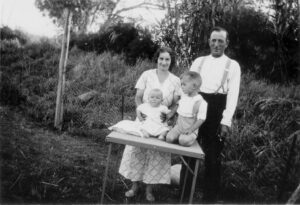
Rae and Barbara’s parents grew a range of vegetables including tomatoes; cauliflowers; cabbages, turnips; spinach; radishes and lettuces which they sold at the East End Market. They focused more on potatoes and celery from the 1940s. Rae attended Urrbrae High School for a year and worked full-time in the garden with his father for ten years until he was 25 years.
The Ballantyne siblings knew three other returned soldiers and their families in the area: George Delicate, Walter Satterley and Archie Smith. They were in the local Returned Soldiers League with their Dad and Reginald West. Although they knew of some of the Italian market gardeners along Valetta and Findon Roads, the families did not really mix.
During the War Rae remembers that there was a fear of Italian market gardeners who lived in the area:
… those days, you knew there was Italians there but you didn’t mix with them much no we were not allowed, I don’t think because during the war years, you know I think there was a bit … I suppose … they were against us and that’s what upset things, I think.
His parents sold their land in 1958/59. They kept half an acre and grew flowers. His mother died in 1973, and his father, in 1977. Both Rae and his wife, and Barbara and her husband bought houses at Kidman Park, staying close to the area where they grew up and saw many changes in the use of land over their lifetime. The market gardens were swallowed up in urban development and the history of the area lives on in the oral history of family members.
You can listen to the interviews with Rae and Barbara and Barrie:
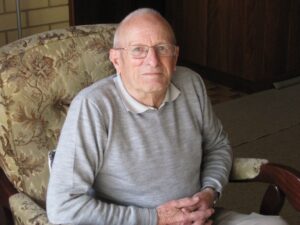
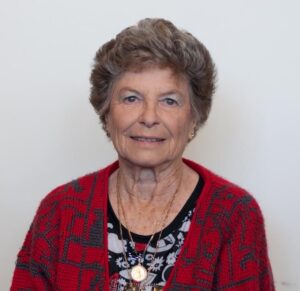
Click here to go to the Ballantyne page.
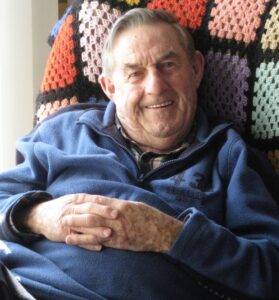
Click here to read more about Barrie West
Madeleine Regan
19 September 2021
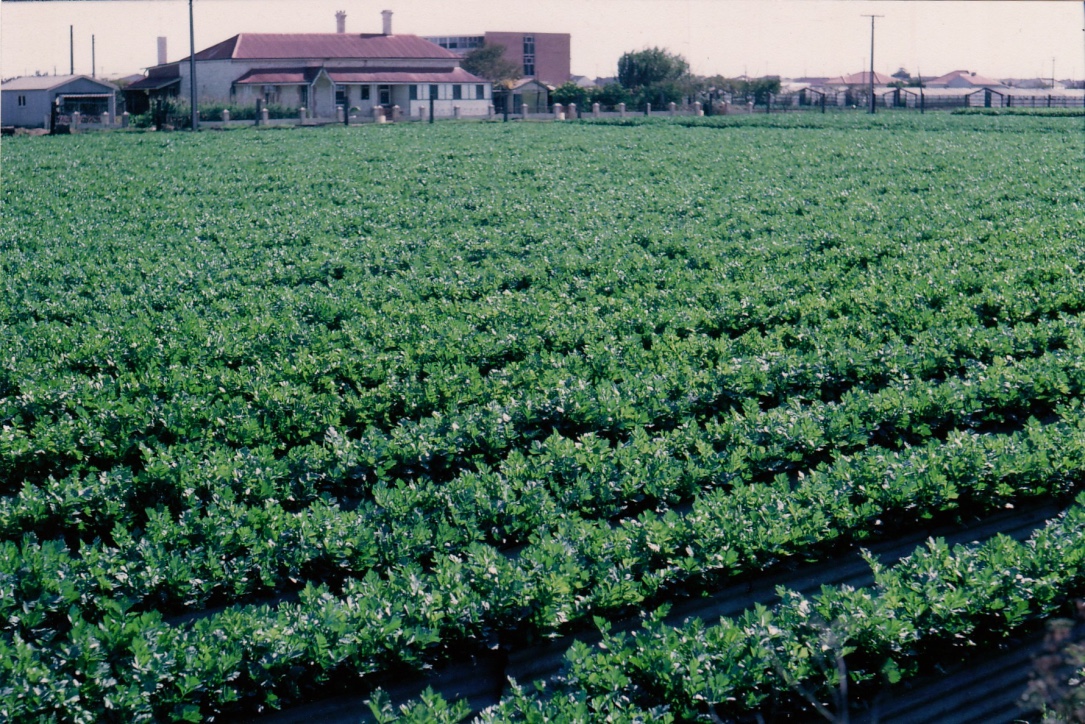
Great work Madeleine. Happy to see the Berno’s house. I will forward a copy to Luigi’s brother in Italy who for a short time lived in a house at the back of the property.